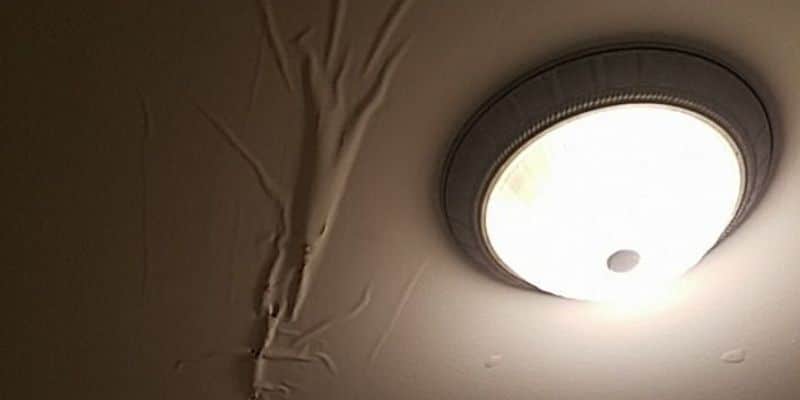Find Out Main Origins Contributing To Water Leakage Within Your Home
Find Out Main Origins Contributing To Water Leakage Within Your Home
Blog Article
This article which follows pertaining to How Fast Water Damage Can Ruin Your Home is especially attention-grabbing. Have a go and make your own personal ideas.

Leakages not only trigger waste of water yet can likewise trigger unnecessary damage to your home and also advertise unwanted organic growth. By looking and recognizing for day-to-day situations that trigger leakages, you can protect your house from future leaks and also unneeded damages.
Encroaching origins
The majority of water leaks start outside your house rather than inside it. If you notice an abrupt decrease in water stress, state in your tap, take time to head out and analyze your lawn. You may see wet spots or sinkholes in your yard, and that could imply that tree origins are attacking water lines causing water to leak out. You can have your plumber look for breach, specifically if you have trees or shrubs near your residential property.
Rusty water systems
This might be the reason of discoloration or bending on your water pipelines. If our plumbing system is old, think about changing the pipes since they are at a greater risk of deterioration than the more recent designs.
Malfunctioning Pipe Joints
The point at which your pipelines connect is regularly the weakest web link in the waterline. Pipe joints can wear away gradually, leading to water leaks. The bulk of pipe joints are not conveniently noticeable. If you have noisy pipes that make ticking or banging noises, particularly when the warm water is turned on, your pipeline joints are possibly under a great deal of stress. It is recommended to have your plumber check your system annually.
Instant temperature level changes.
Extreme temperature level adjustments in our pipes can cause them to increase and contract all of a sudden. This growth and also contraction might trigger splits in the pipes, specifically if the temperature are below freezing. It would certainly be best if you kept an eye on just how your plumbing works. The existence of the previously stated conditions frequently shows a high threat.
Poor Water Connectors
At times, a leakage can be created by loosened tubes as well as pipes that supply your devices. In situation of a water connections leakage, you might notice water running directly from the supply line or pools around your devices.
Blocked Drains
Clogged drains could be irritating as well as inconveniencing, but they can occasionally wind up creating an overflow leading to rupture pipelines. Keep removing any materials that may go down your drains pipes that might obstruct them to stay clear of such aggravations.
All the above are causes of leakages but not all water leakages arise from plumbing leakages; some leaks may originate from roofing leaks. All leakages need to be repaired immediately to avoid water damage.
Leakages not just cause waste of water but can likewise cause unnecessary damage to your home and also advertise undesirable organic growth. By comprehending and also looking for daily circumstances that trigger leaks, you can secure your house from future leakages and unneeded damages. Today, we will look at six leak causes that might be creating your pipes to leak.
At times, a leak can be created by loosened hoses and pipes that supply your devices. In case of a water links leakage, you might observe water running straight from the supply line or pools around your appliances.
How To Check For Water Leak In Your Home
How To Check for Leaks
The average household's leaks can account for nearly 10,000 gallons of water wasted every year and ten percent of homes have leaks that waste 90 gallons or more per day. Common types of leaks found in the home are worn toilet flappers, dripping faucets, and other leaking valves. These types of leaks are often easy to fix, requiring only a few tools and hardware that can pay for themselves in water savings. Fixing easily corrected household water leaks can save homeowners about 10 percent on their water bills.
To check for leaks in your home, you first need to determine whether you're wasting water and then identify the source of the leak. Here are some tips for finding leaks:
Take a look at your water usage during a colder month, such as January or February. If a family of four exceeds 12,000 gallons per month, there are serious leaks.
Check your water meter before and after a two-hour period when no water is being used. If the meter changes at all, you probably have a leak.
Identify toilet leaks by placing a drop of food coloring in the toilet tank. If any color shows up in the bowl after 10 minutes, you have a leak. (Be sure to flush immediately after the experiment to avoid staining the tank.)
Examine faucet gaskets and pipe fittings for any water on the outside of the pipe to check for surface leaks.
Undetected water leaks can happen without the home or business owner even realizing. If you suspect a water leak, but not able to find the source. It is time to contact a professional water leak detection service, The Leak Doctor.
How To Find a Water Leak In Your Home
https://www.leakdoctor.com/blog/How-To-Check-For-Water-Leak-In-Your-Home_AE197.html

We were guided to that editorial on Common Water Leaks In House from an associate on a different domain. Do you know someone else who is excited about the topic? Take a moment to promote it. Thank you for going through it.
Prioritize your plumbing; call us. Report this page